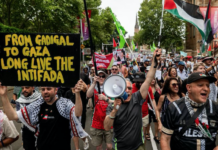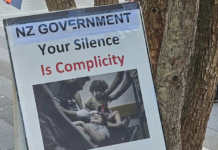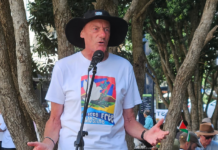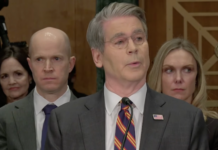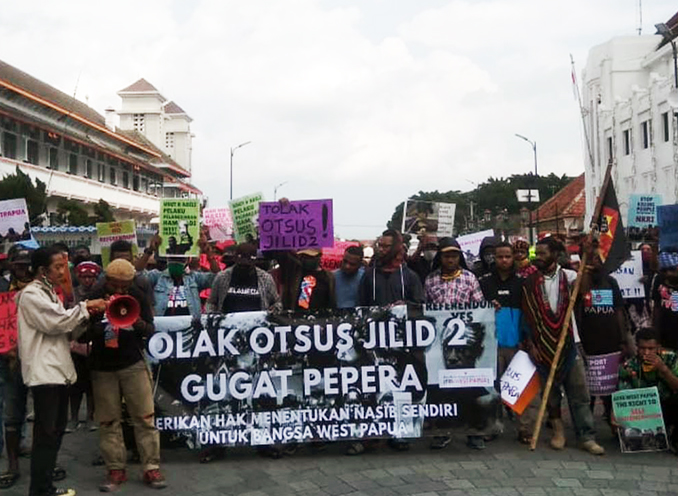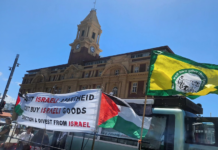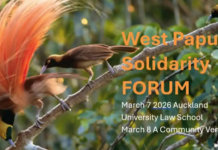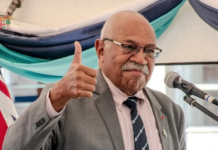By IndoLeft News in Yogyakarta
Papuan students and activists have held a protest action against Special Autonomy
(Otsus) Chapter II at the zero kilometre point in Indonesia’s central Java city of Yogyakarta.
The joint action was initiated by the Papuan Student Alliance (AMP) and the Indonesian People’s Front for West Papua (FRI-WP).
READ MORE: Indonesian government accused of creating ‘news pandemic’
During the action last Tuesday they made a number of demands including:
- Rejecting the planned extension of Papua Special Autonomy which will expire in 2021;
- Challenging the results of the 1969 UN sponsored referendum (Pepera) on Papua’s integration with Indonesia;
- Calling for the unconditional release of all Papuan political prisoners (tapol);
- Rejecting the Draft Omnibus Law on Job Creation, calling for the recently enacted Mineral and Coal Mining (UU Minerba) to be revoked and demanding the ratification of the Draft Law on the Elimination of Sexual Violent (RUU PKS);
- Calling for the closure of the Freeport gold-and-copper mine and all foreign companies in West Papua;
- Rejecting the establishment of a military headquarters in West Papua;
- Demanding that the broadest possible access be given to journalists to report in West Papua;
- Calling for the decision to expel four students from Khairun University in Ternate be revoked;
- Demanding the withdrawal of all organic and non-organic troops from West Papua; and
- Calling for the right to self-determination as a democratic solution for the West Papua nation.
Long march to Post Office
The action began with a gathering at the Papuan student dormitory in Kamasan which was followed by a long march to the zero kilometre point in front of the Central Post Office.
During the action it was also emphasised that all participants should follow health protocols to safeguard each other’s health amid the covid-19 global pandemic.
After marching for half-an-hour, the protesters arrived at the zero kilometre point where they formed a circle and held a free speech forum.
Speeches were made by organisational representatives and individuals who took up a number of issues, including the dangers of extending Special Autonomy and the business interests behind this, challenging the undemocratic 1969 Pepera and the militarism practiced by Indonesia in Papua, as well as the importance of demanding an act of self-determination for the West Papuan nation.
In addition to this, one of the highlighted issues during the speeches was how the Special Autonomy applied by the Indonesian state in Papua is “nothing more than a tool to silence the Papuan people’s resistance”.
It is also used as a manipulation by the local political elite in Papua to serve the political elite in Jakarta.
Special Autonomy has also not brought any improvements for the Papuan people as can be seen from the fact that the ordinary Papuan people are far from what could be called prosperous, human rights violations are increasing and the poor state of healthcare and education.
‘Tool for corrupt practices’
“Those who benefit from Special Autonomy are none other than those in power. Special Autonomy has become a tool to legitimise all kinds of corrupt practices by the ruling class,” say critics.
“On the pretext of developing Papua, militarism is legalised to silence the Papua people’s resistance movement.”
In addition to this, several participants at the action emphasised the importance of challenging the 1969 Pepera on the grounds that it was undemocratic and violated international law.
One of the speakers said that during the 1969 referendum each Papuan person should have been given one vote. However what took place was not in fact like that.
What occurred instead was a consensus by 1025 representatives who had been chosen to vote for integration with Indonesia, yet the Papuan population at the time was around 800,000 people.
“So it is very important that the Papuan and Indonesian people fight for the demand for an act of self-determination in order to realise a democratic solution for the West Papuan nation,” say critics of Jakarta’s policies.
At 1.29 pm the rally ended with the action coordinator reading out a statement after which the protesters disbanded in an orderly fashion.
- Arah Juang (Direction of Struggle) is the official newspaper of the Socialist Union (Perserikatan Sosialis)
Translated by James Balowski. The original title of the article was “Aksi Tolak OTSUS Jilid II di Yogyakarta”. Republished in partnership with IndoLeft News.


